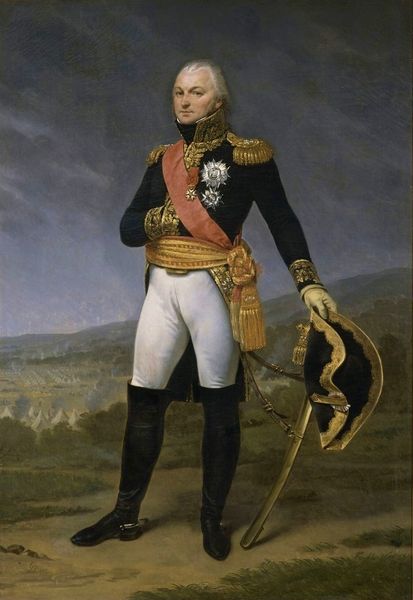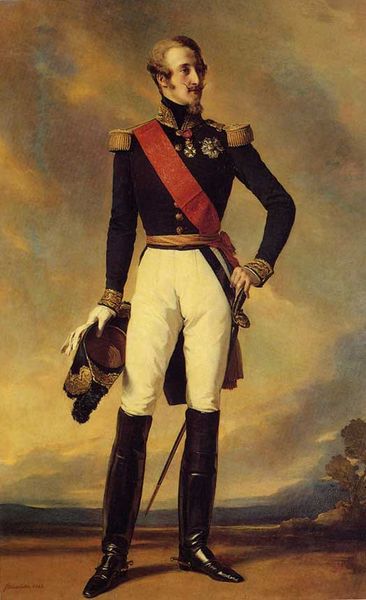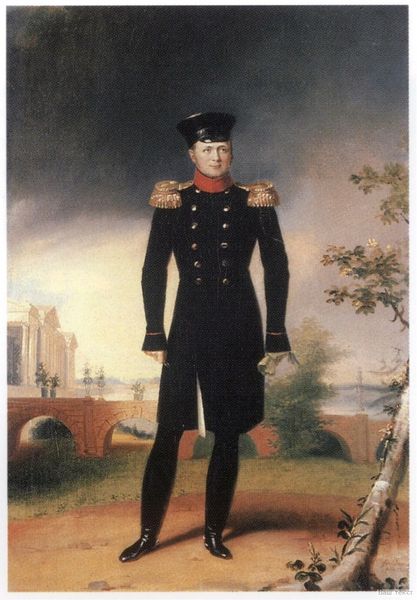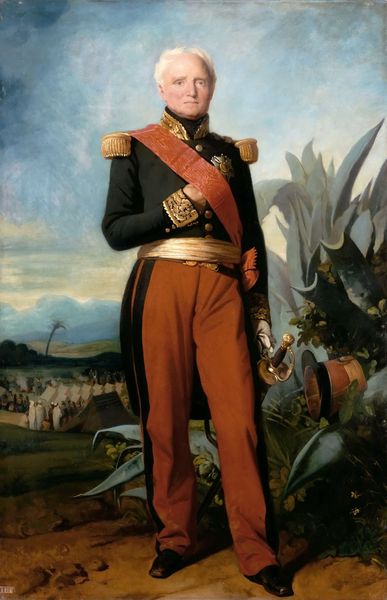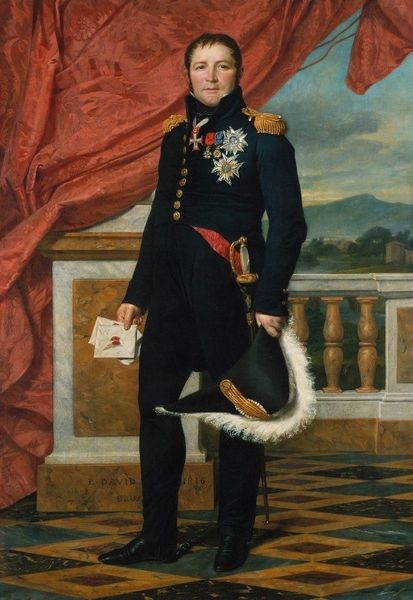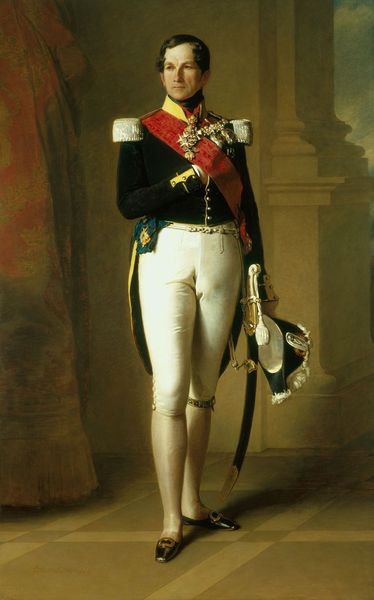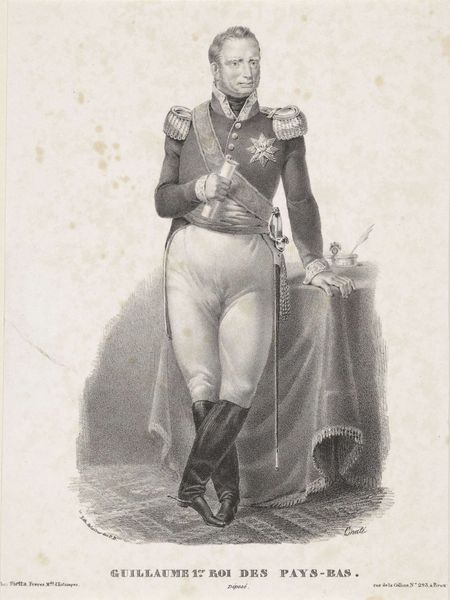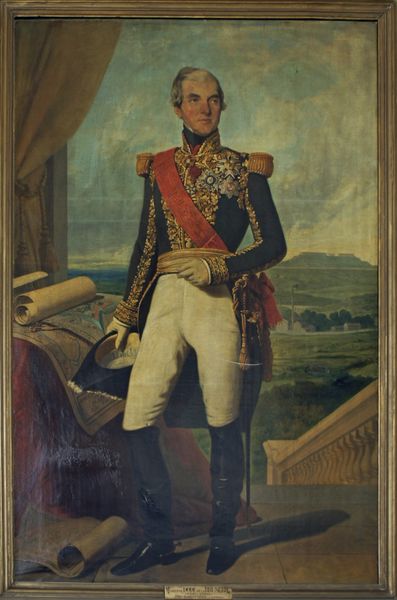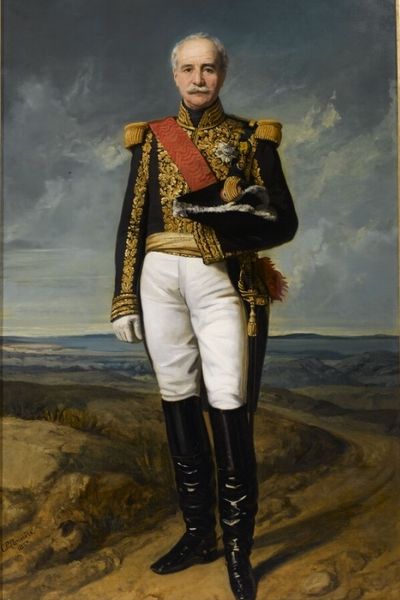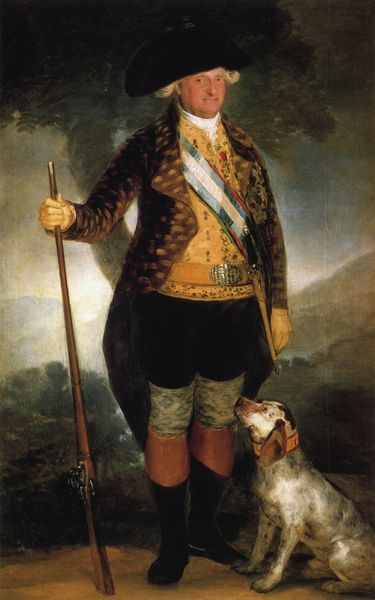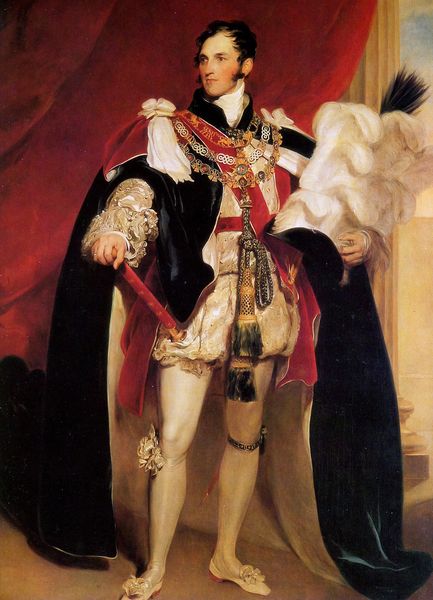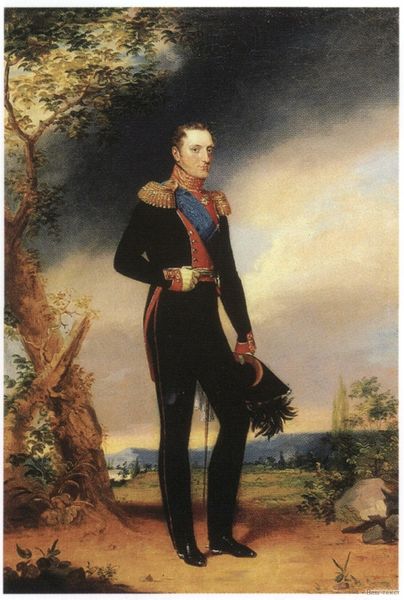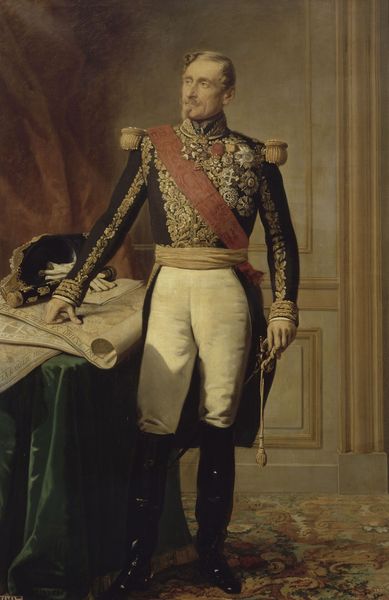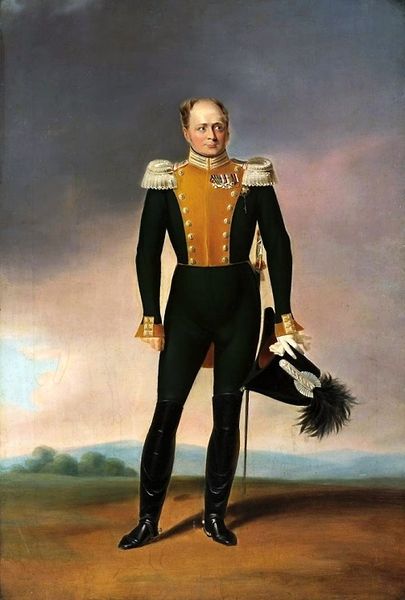
painting, oil-paint
#
portrait
#
painting
#
oil-paint
#
romanticism
#
history-painting
#
academic-art
#
portrait art
#
realism
Copyright: Public domain
Curator: This is George Dawe’s "Portrait of Russian Emperor Nicholas I," an oil painting created in 1828. He certainly makes a statement, doesn't he? Editor: Absolutely. My immediate reaction is that there’s a quiet intensity to him, despite the very ornamented getup. And is it just me, or is there almost something vulnerable in his eyes, playing against the very image he must’ve wished to project? Curator: I see what you mean. Dawe walks a fine line, portraying the Emperor with the symbols of power, but not masking a certain...weariness? These official portraits served very specific functions, shaping public perception and legitimizing rule. Yet, some humanity seeps through. Editor: Yes! It's in the almost too-delicate shading around the eyes and the slightest downturn of his mouth. How conscious was Dawe of this, do you think? Curator: Hard to say definitively, but Dawe was working in a world where the Romantic ideals were intertwining with strict academic traditions. So the impulse to hint at inner depths while maintaining a formal pose would definitely be present. Plus, Dawe's personal history is intriguing. Editor: Do tell. Curator: He's English, yet he became the leading portraitist for the Russian Imperial Court after the Napoleonic Wars. He painted hundreds of portraits of Russian generals for the Winter Palace. Editor: So he wasn't just painting royalty; he was memorializing the figures and victories central to Russian national identity and political power. And being British, it would make one think about identity and perspective as an artist within a culture like this. Curator: Precisely. Looking again, notice how Nicholas’s pose is standard, the setting idealized with a typical backdrop, yet Dawe captures a unique psychology—almost melancholic— within those conventions. The slight touch of realism. It offers something beyond mere propaganda. Editor: It makes one consider the human cost of empire, of power. Thanks to Dawe's ability as a portraitist, it feels far from a simple endorsement of the status quo. Curator: I find it particularly compelling how Dawe reconciles artistic skill with political and societal demands. It’s quite profound how the era is rendered not as the image of brute control, but something with more complex emotional textures. Editor: Definitely food for thought! A powerful ruler portrayed with humanity, and an artist caught between personal expression and historical expectation. A nuanced window into another time, perhaps something still meaningful today.
Comments
No comments
Be the first to comment and join the conversation on the ultimate creative platform.
